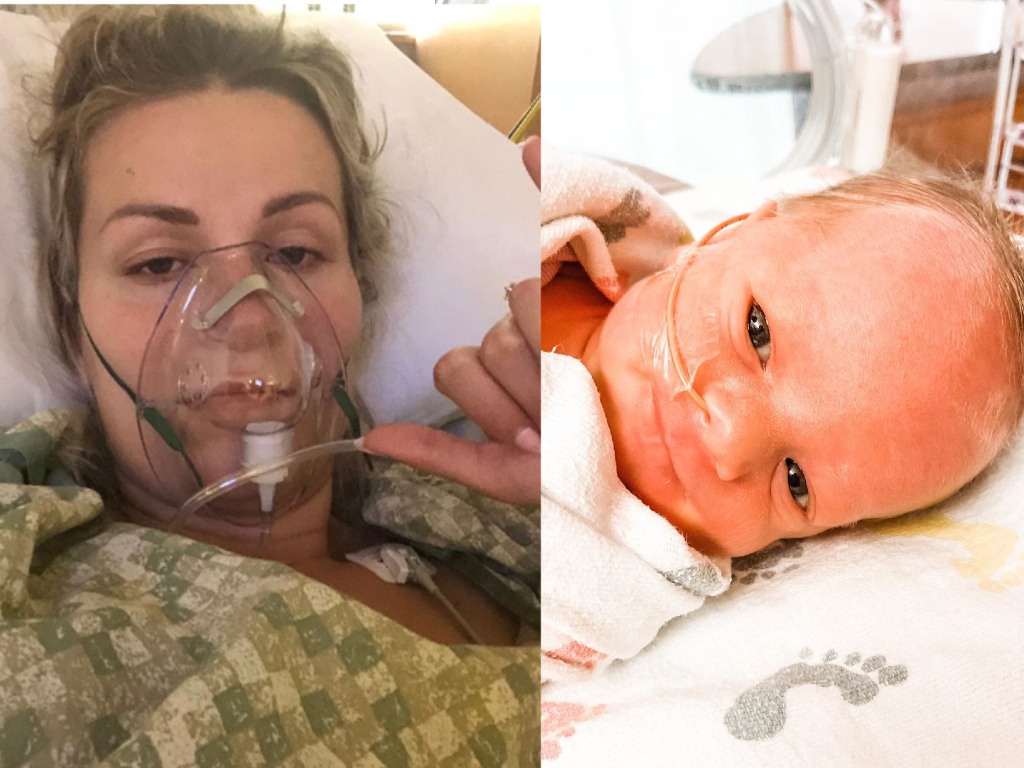A Washington woman woke up as a new mom after being in a medically induced coma because of her coronavirus diagnosis.

Angela Primachenko, 27, was in a coma for a week and came back into consciousness on April 6. When she woke up, she had a newborn baby girl in lieu of a pregnant belly, she told the Today show.
“I just woke up and all of a sudden I didn’t have my belly anymore,” she said. “It was just extremely mind-blowing.”
Primachenko, a respiratory therapist, lives in Washington state. The first U.S. case of the novel coronavirus was announced on Jan. 21.
She got tested for COVID-19, the disease caused by the virus, after developing a cough and fever 33 weeks into her pregnancy, CNN reports. The test came back positive, and she ended up in an intensive care unit on March 26.
“Being a respiratory therapist … I knew I couldn’t keep breathing the way I was and survive,” Primachenko told CNN, adding that she was put on a ventilator and was in a coma three days later.

“When you’re that sick, you’re just fighting for your life,” she said. “My focus wasn’t on fear. It was just on getting through it.”

Get daily National news
Her labour was induced on April 1, and her daughter, Ava, was born prematurely, Primachenko’s sister, Oksana Luiten, told NBC-affiliate KGW-TV.
The baby has reportedly tested negative for the virus.
Luiten shared a photo of herself and her sister, wearing a medical mask, on Instagram, writing: “Feels surreal posting a picture with Angela next to me. The last two weeks I wasn’t sure if I would ever take a new picture with her.
The new mom has been able to meet Ava through video calls but won’t be physically reunited with her until she has two back-to-back negative COVID-19 tests, according to KGW-TV.
—
Questions about COVID-19? Here are some things you need to know:
Health officials caution against all international travel. Returning travellers are legally obligated to self-isolate for 14 days, beginning March 26, in case they develop symptoms and to prevent spreading the virus to others. Some provinces and territories have also implemented additional recommendations or enforcement measures to ensure those returning to the area self-isolate.
Symptoms can include fever, cough and difficulty breathing — very similar to a cold or flu. Some people can develop a more severe illness. People most at risk of this include older adults and people with severe chronic medical conditions like heart, lung or kidney disease. If you develop symptoms, contact public health authorities.
To prevent the virus from spreading, experts recommend frequent handwashing and coughing into your sleeve. They also recommend minimizing contact with others, staying home as much as possible and maintaining a distance of two metres from other people if you go out.
For full COVID-19 coverage from Global News, click here.
—









Comments
Want to discuss? Please read our Commenting Policy first.